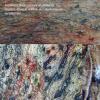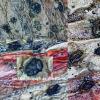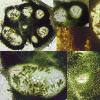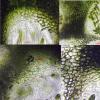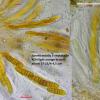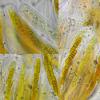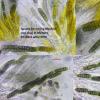
21-01-2026 16:48
Gernot FriebesHi,after my last unknown hyphomycete on this subst

21-01-2026 16:32
Gernot FriebesHi,I need your help with some black dots on a lich

20-01-2026 17:49
 Hardware Tony
Hardware Tony
I offer this collection as a possibility only as e

15-01-2026 15:55
 Lothar Krieglsteiner
Lothar Krieglsteiner
this one is especially interesting for me because

17-01-2026 19:35
Arnold BüschlenHallo, ich suche zu Cosmospora aurantiicola Lite

16-01-2026 00:45
Ethan CrensonHi all, On decorticated hardwood from a New York

18-01-2026 12:24
Hello.An anamorph located on the surface of a thin
ascomycete on Agave from Portugal
Lothar Krieglsteiner,
11-03-2025 17:22
 found last November in the Algarve, Serra Monchique. Who can provide me with a hint?
found last November in the Algarve, Serra Monchique. Who can provide me with a hint?Yolurs, Lothar
Hardware Tony,
12-03-2025 15:21

Re : ascomycete on Agave from Portugal
Hi Lothar,
Take a look at Phaeosphaeriopsis obtusispora, as the spores blacken in Lugols, the size fits and the key was the central cell slightly larger than the rest. Looked at Leptospharia also as this is a key feature of spores in that genera also. Or in and around Phaeosphaeriaceae. Just an option perhaps,
regarsd Tony
Take a look at Phaeosphaeriopsis obtusispora, as the spores blacken in Lugols, the size fits and the key was the central cell slightly larger than the rest. Looked at Leptospharia also as this is a key feature of spores in that genera also. Or in and around Phaeosphaeriaceae. Just an option perhaps,
regarsd Tony
Lothar Krieglsteiner,
12-03-2025 15:33

Re : ascomycete on Agave from Portugal
Hello Tony,
thank you very much for this hint that - I will follow it in the next days. At first glance it looks if it could be a "Hit the bull's eye".
Best regards, Lothar
thank you very much for this hint that - I will follow it in the next days. At first glance it looks if it could be a "Hit the bull's eye".
Best regards, Lothar
Lothar Krieglsteiner,
12-03-2025 16:21

I think better P. agavensisl
Using the key in Thambugala & al. (Phylogeny and morphology of Phaeosphaeriopsis triseptata sp. nov., and Phaeosphaeriopsis glaucopunctata) I come to P. agavensis, because the ascomata are partly multilocular (as can bee seen in the section in my second picture). The spore width fits better, too, even if the spore length is a little bit large.
Thanks again, Tony!
Thanks again, Tony!


